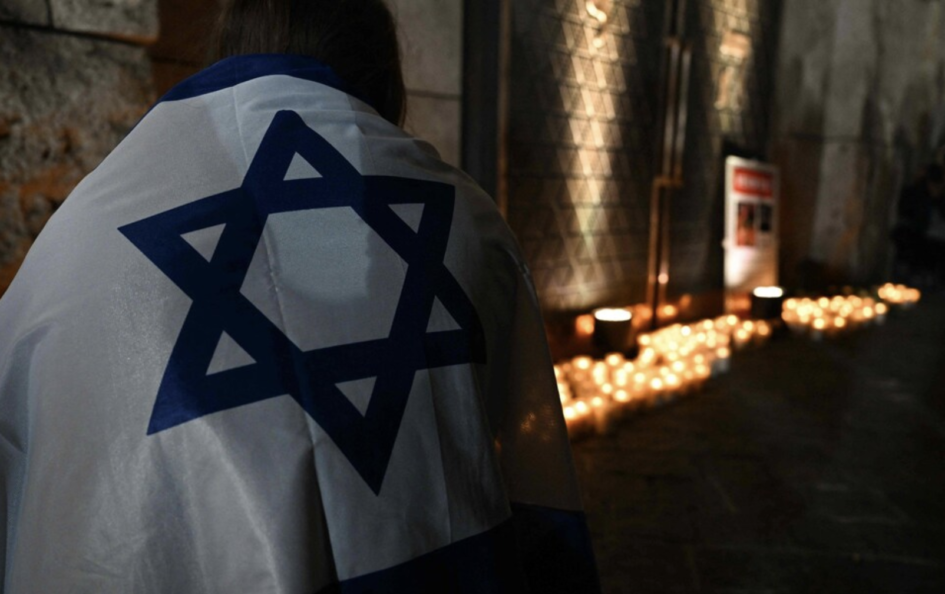Thoughts on parashat Vayera.
I had a dream two days ago. I was in my old neighborhood, in Przemyśl, Poland, with two other men approximately my age. We had machine guns and wore bullet proof vests. We were chased by a group of militants who wanted to kill us. At some point the three of us split and entered different apartments in the same building, the building I used to live in, each one of us on a different side of it. I entered my old apartment, where I used to live with my parents. The apartment was empty, just furniture, no people. The entire time I was there I ran from window to window, checking if the guys that wanted to kill us appeared somewhere on the horizon. This building seemed to be a good tactical place from which we could defeat our enemies.
Running back and forth, I ended up killing nobody – I simply woke up. In my dream, on the literal level, the house I grew up in was in danger. In reality, however, the home of my childhood was a symbol of a safe haven – a representation of a safe home I live in now, here in America. But this dream is also proof that we, people, react to our experiences and all kinds of things we are exposed to not only consciously but subconsciously. This dream was a direct, subconscious reaction to what has been happening in Israel in recent weeks, to all I read about it and saw through the virtual channels.
In this week’s parasha Abraham moves to Gerar, where king Abimelech takes Sarah—who is presented as Abraham’s sister—to his palace. In a dream, God warns Abimelech that he will die unless he returns the woman to her husband. Abraham explains that he feared he would be killed over the beautiful Sarah. But that’s not the end of the story and Abimelech’s dream contains a deeper message than a simple warning. This is how Abimelech responds to the Eternal in his dream, after hearing the Divine threat:
Abimelech had not approached her. He said, “O lord, will You slay people even though innocent? He himself said to me, ‘She is my sister’! And she also said, ‘He is my brother.’ When I did this, my heart was blameless and my hands were clean.” And God said to him in the dream, “I knew that you did this with a blameless heart, and so I kept you from sinning against Me. That was why I did not let you touch her. Therefore, restore the man’s wife—since he is a prophet, he will intercede for you—to save your life. If you fail to restore her, know that you shall die, you and all that are yours.” (Genesis 20:4-7)
Abimelech did everything that God commanded him and even more. He gave Abraham his wife back, provided him with a flock, gave him some of his slaves, and told him that he could settle anywhere he wanted. What was then the reaction of Abraham? He didn’t say ‘thank you’ and left. He also did more than he was expected:
Abraham then prayed to God, and God healed Abimelech and his wife and his slave girls, so that they bore children; for יהוה had closed fast every womb of the household of Abimelech because of Sarah, the wife of Abraham. (Genesis 20:17-18)
One of the lessons we can draw from this story is that generosity, kindness and humility (i.e. listening to the Divine voice) have power to overcome fear (Abimelech and his courtiers were in dread after this dream) and this is particularly important these days. Therefore, instead of simply telling each other ‘not to fear’ a better and more effective way may be to encourage each other to do these three things. Another lesson we can draw from it is about generosity too, but more profoundly about doing the right thing, as both Abimelech and Abraham did, which is not always easy to find out in our complex and confusing times. Therefore let me suggest what is the right thing to do. We all want peace in Israel and in the entire Middle East, right? To achieve that goal it is necessary to eliminate Hamas, as it was necessary to eliminate Nazis to end WWII. As long as these genocidal maniacs, whose only goal is to destroy us, are free to operate there is no prospect for peace, and I believe we can all agree on that. Thus, the right thing to do is to help Israel to complete, to the very end, their operation in Gaza, to eliminate every possible terrorist, every possible threat, as well to respond with the full force to the threats she faces from the north, from Hezbollah and from the Syrian front organized and backed by the genocidal regime of Iran. There is a price to pay for that, and both sides pay and will pay this price because, in reality, there is no other way – it is impossible to solve this conflict through negotiation. Let us then use every resource we have – all kinds of support: intellectual, economical – like donating to organizations helping Israelis on the ground – as well as political, to help Israel – our homeland – to win this war, the true war, instead of shooting in our own safe backyard, as I did with the imaginary enemies in my dream.
Shabbat shalom!
Rabbi Mirski

